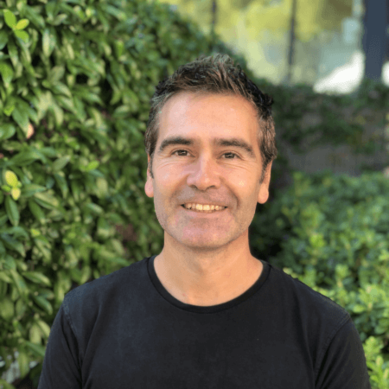Funding Summary
The probiotic supplement, BPL1, shows promise improving metabolism and behavior in people with PWS, but more work is needed to understand how this gut microbiome intervention can be optimized. This project aims to understand how probiotic supplementation improves metabolic and mental health in individuals with PWS by influencing brain circuits regulating energy balance.
Dr. Theresa Strong, Director of Research Programs, explains the details of this project in this video clip.
Lay Abstract
The gastrointestinal tract is colonized by microorganisms commonly known as the gut microbiome, whose composition influences human health. Probiotic supplementation alters the microbiome and the production of bioactive metabolites that influence appetite and energy homeostasis. Indeed, microbial metabolites are key players in the cross-communication between gut and brain, regulating a range of symptoms, including satiety and anxiety. Targeting the microbiome is actively investigated as a therapeutic strategy for a wide range of diseases, including obesity, depression, and autism. Among all gut bacteria, Bifidobacterium animalis spp. lactis (BPL1) showed promises in reducing body weight and improve metabolic function. Positive results have been reported in subjects with PWS, with reduced adiposity and improved insulin sensitivity and cognitive function. However, the mechanisms underlying these effects are still unknown. This proposal aims to understand how probiotic supplementation improves metabolic and mental health in individuals with PWS by influencing brain circuitries regulating energy homeostasis. For that, we are combining interdisciplinary laboratory and clinical expertise. For the clinical part, we will take advantage of an ongoing clinical trial in which subjects with PWS are being treated with the probiotic BPL1. Plasma and feces are being taken and we will determine the gut microbiome composition and metabolite concentrations. Changes in gut microbiome and metabolome will be correlated with clinical data to identify the microbial metabolites that potentially mediate the beneficial effect of BPL1. In the lab, we will recreate a key brain structure involved in appetite sensing deeply affected in subjects with PWS named the arcuate nucleus (ARC) of hypothalamus. For that, we will tissue engineering to create organ-like tissue structures, or organoids, resembling this part of the human brain from stem cell models of PWS harboring the paternal deletion of 15q11.2-13 region. In follow-up studies, this model will be used as a reliable platform to assess the impact of the most relevant BPL1 metabolites, crossing the blood-brain barrier (BBB), in hypothalamic functioning. With this project, we hope to decipher the molecular mechanisms regulating energy homeostasis through which probiotic supplementation improves metabolic and mental health in individuals with PWS.
Research Outcomes: Public Summary
The objective of this study was to identify metabolite signals that accompany beneficial shifts in body weight trajectories by examining the relationship between the gut microbiome and host metabolism in Prader-Willi syndrome (PWS). We analyzed the changes in BMI z-score in relation to four comprehensive datasets collecting data from a longitudinal study design: microbiome composition, microbiome functional capacity, fecal metabolome, and plasma metabolome.
We identified four distinct latent factors that exhibited statistically significant associations with changes in BMI z-score through the application of Multi-Omics Factor Analysis (MOFA), representing various aspects of the relationship between the gut microbiome and host metabolism. Plasma metabolomics and functional metagenomics were the primary sources of explanation for the factors associated with changes in BMI z-score, rather than the microbiome composition itself. Functional metagenomics includes the genetic repertoire of bacterial communities, reflecting their metabolic potential and active biochemical pathways beyond simply focusing on species abundance. With this approach, we have identified specific bacterial functional pathways, including glutamate and arginine metabolism and methane production pathways, as well as several host metabolites, including specific lipid species, associated with BMI z-score. By defining these signatures, we can begin to map disease-specific pathways that not only improve our understanding of PWS pathophysiology but also serve as a foundation for developing precision medicine strategies aimed at more effective and individualized weight management.
While these findings are highly informative, their functional relevance must be tested in controlled biological systems. For this reason, we recreated a key brain structure involved in appetite sensing deeply affected in subjects with PWS named the arcuate nucleus (ARC) of hypothalamus. For that, we created organ-like tissue structures, or organoids, resembling this part of the human brain from stem cell models of PWS. The generation of ARC organoids will allow us to directly model PWS-specific brain development and assess how these candidate metabolites and pathways influence hypothalamic functioning.
In our ARC organoid model, we found preliminary signs of impaired hypothalamic lineage specification in PWS, with markedly reduced expression of key ventral/hypothalamic markers (NKX2.1, OTP, ASCL1, and POMC) and an unexpected late-stage increase in AGRP. Although these findings suggest altered differentiation of hypothalamic neurons involved in appetite and energy balance in PWS, their generation was technically demanding and difficult to reproduce consistently. To ensure robust and reproducible results, we also established a model of dorsal forebrain organoids (DFOs) in PWS, a brain region critically involved in cognition, executive function, and higher-order regulation of feeding behavior. DFOs generated from both PWS and control stem cells differentiated efficiently and were robust and reproducible.
In summary, establishing these organoid models creates versatile, patient-specific models for studying how genetic and metabolic factors shape brain development in PWS. These platforms will be critical for testing the candidate metabolites and pathways identified in our multi-omic analysis, accelerating the path toward targeted, precision therapies for weight management in PWS.
Funded Year:
2023
Awarded to:
Carles Lerin, PhD
Amount:
$75,600
Institution:
Fundació Sant Joan de Déu
Researcher:

Carles Lerin, PhD




